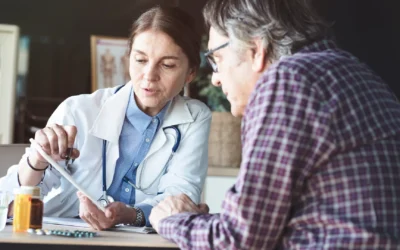Sudden cardiac arrest (SCA) is a medical emergency characterized by the sudden, unexpected loss of heart function, breathing, and consciousness. It usually results from an electrical disturbance in the heart that disrupts its pumping action. SCA is different from a heart attack, which occurs when blood flow to the heart is blocked.
Overview:
Sudden cardiac arrest is a life-threatening condition that requires immediate medical intervention. Without prompt action, SCA can result in death within minutes. Successful resuscitation and survival depend on the rapid initiation of cardiopulmonary resuscitation (CPR) and defibrillation (an electric shock to the heart).
Symptoms:
The symptoms of sudden cardiac arrest typically occur without warning and may include:
- Sudden collapse
- No pulse or breathing
- Unresponsiveness
- Loss of consciousness
Causes:
Sudden cardiac arrest is caused by electrical disturbances in the heart that disrupt its ability to pump blood effectively. The most common cause is ventricular fibrillation, a chaotic, rapid heartbeat. Other potential causes include:
- Heart attack
- Heart arrhythmias (abnormal heart rhythms)
- Congenital heart defects
- Electrical or structural heart abnormalities
- Drug abuse or overdose
Risk Factors:
Various factors can increase the risk of sudden cardiac arrest, including:
- Coronary artery disease
- Previous heart attack
- Heart failure
- High blood pressure
- High cholesterol
- Smoking
- Obesity
- Diabetes
- Family history of sudden cardiac arrest or heart disease
- Illegal drug use
- Age (risk increases with age)
- Gender (males are more likely to experience SCA)
Prevention:
To reduce the risk of sudden cardiac arrest, consider the following:
- Manage and control risk factors such as high blood pressure, high cholesterol, diabetes, and obesity.
- Quit smoking.
- Limit alcohol consumption.
- Stay physically active and maintain a healthy weight.
- Eat a balanced, heart-healthy diet.
- Take prescribed medications as directed.
- Report any heart-related symptoms or family history of heart disease to your healthcare provider.
When to See the Doctor:
If you experience any symptoms associated with heart disease or have risk factors for sudden cardiac arrest, seek medical attention. Regular check-ups and appropriate management of risk factors are essential for reducing the risk of SCA.
Additional Information:
Bystander intervention is crucial in improving survival rates from sudden cardiac arrest. Learn how to perform CPR and use an automated external defibrillator (AED). Encourage family members, friends, and coworkers to do the same.
In conclusion, Sudden cardiac arrest is a life-threatening medical emergency that requires immediate action. Recognizing the symptoms and risk factors is crucial for early intervention and increasing the chances of survival. By managing your risk factors and maintaining a heart-healthy lifestyle, you can reduce your risk and protect your heart.









